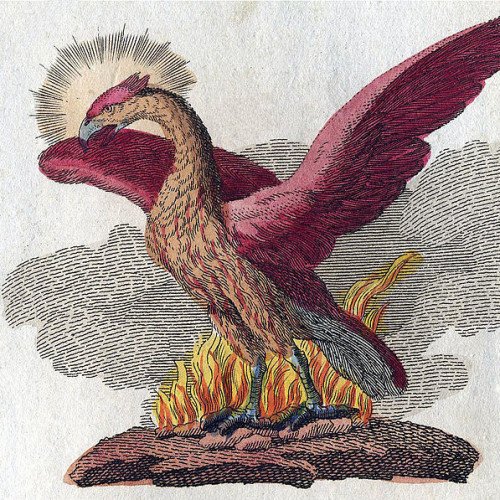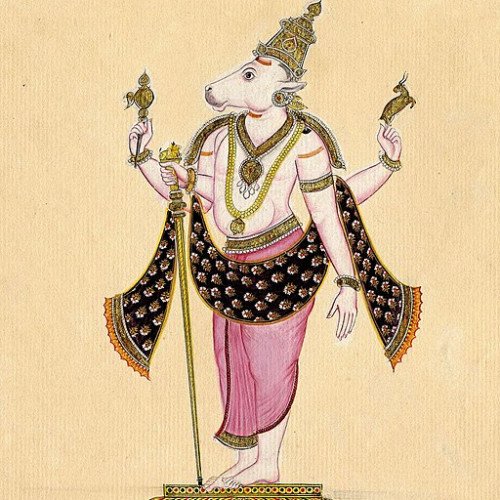Phoenix (mythology) VS Nandi (mythology)

Phoenix (mythology)
In Ancient Greek folklore, a phoenix (; Ancient Greek: φοῖνιξ, phoînix) is a long-lived bird that cyclically regenerates or is otherwise born again. Associated with the sun, a phoenix obtains new life by arising from the ashes of its predecessor. Some legends say it dies in a show of flames and combustion, others that it simply dies and decomposes before being born again.Over time the phoenix motif spread from its origins in classical folklore and gained a variety of new associations: Herodotus, Lucan, Pliny the Elder, Pope Clement I, Lactantius, Ovid, and Isidore of Seville are among those who have contributed to the retelling and transmission of the phoenix motif. Over time, extending beyond its origins in classical Greek folklore, the phoenix could variously "symbolize renewal in general as well as the sun, time, the Empire, metempsychosis, consecration, resurrection, life in the heavenly Paradise, Christ, Mary, virginity, the exceptional man, and certain aspects of Christian life". In the Motif-Index of Folk-Literature, a tool used by folklorists, the phoenix is classified as motif B32.
Statistics for this Xoptio

Nandi (mythology)
Nandi (Sanskrit: नन्दि, Tamil: நந்தி, Kannada: ನಂದಿ, Telugu: న౦ది, Odia: ନନ୍ଦି) is the gate-guardian deity of Kailasa, the abode of Lord Shiva. He is usually depicted as a bull . The decorated bull gangi reddu is the tradition of ancient south india. During the festival of pongal the bull is decorated and performs of stunning ‘feats’. “An ox can dance to the tune of its master’s nadaswara, it can nod at his command or shake its head to indicate no, kneel down and prostrate or bow when asked to. You can often see a Gangireddu stand on its master’s chest and bow in complete humility, appreciating a patron who has bestowed money or food on them. The ‘Dance with the Bulls’ series showcases the feats they perform,”.The tradition of Gangireddu is associated with saivism and grama devata or para sakti honored as universal energy field and attributes. Nandi is a Dravidian root word (kui) which was taken to prakrit and sanskrit and translates to happiness or joy. According to Saivite siddhantic tradition, he is considered as the chief guru of eight disciples of Nandinatha Sampradaya, namely, Sanaka, Sanatana, Sanandana, Sanatkumara, Tirumular, Vyagrapada, Patanjali, and Sivayoga Muni, who were sent in eight different directions, to spread the wisdom.The Cham Hindus of Vietnam believes that when they die, the Nandi will come and take their soul to the holy land of India from Vietnam.